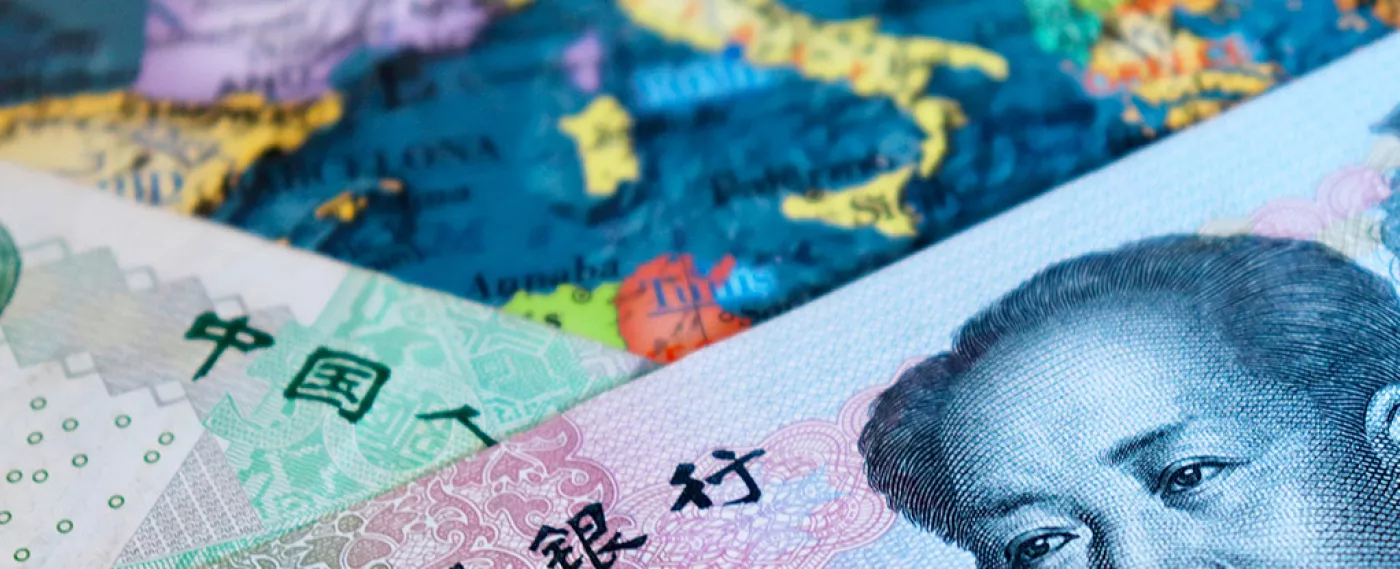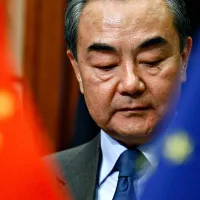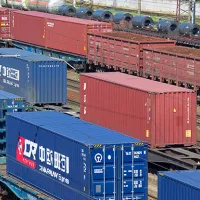- Home
- Expressions by Montaigne
- China Trends #5 - Living with the EU’s Investment Screening


The EU formally adopted an investment screening regulation in March 2019.1 The regulation creates an information-sharing mechanism for the Commission and Member States on incoming foreign investment in Europe that is scheduled to be operational in October 2020.2 Even though the European instrument is not yet fully operational, screening is already part of a changed operating environment for Chinese firms seeking acquisitions in Europe. How does this affect their business activities? And does the changing regulatory environment have an impact on the politics of EU-China relations?
The politics of FDI screening in Europe
Leng Shuai, a Ph.D. Candidate at Xi'an Jiaotong University, starts his analysis with a lucid assessment of Chinese investment in Europe: there is "a variety of recipient countries and sectors, cases of success and failure".3 Recent MERICS/Rhodium research shows Chinese FDI transactions in Europe in 2019 at EUR 12 billion, a decrease of 33% from 2018 level, and on a continuous downward trend since the 2016 peak at EUR 37,3 billion.4After this cautionary take that a one-size-fits-all analysis does not capture the diversity of Chinese investment in the EU, Leng Shuai contradicts the view, held by some other Chinese analysts, that European FDI screening is simply a protectionist response against incoming foreign investment from China, and about creating "barriers" (壁垒). This is the case for example of Ye Bin, Director of the EU Law research office at the European Department of the China Academy of Social Sciences (CASS). He sees FDI screening as "selective trade protectionism" (有选择性的贸易保护主义) and as an approach which is incompatible with the principle of free movement of capital, enshrined in European treaties.5
To Leng Shuai, FDI screening is first and foremost about intra-European harmonization of foreign investment policies, creating transparency, with the ultimate aim of protecting European security interests. As such, the FDI screening regulation will effectively prevent Member States from adopting excessively protectionist legislation that could reverse globalization.
In other words, Leng Shuai sees the EU system generating convergence on a middle-of-the-road approach and thus implicitly as a positive development. China established its own security screening system for foreign investment as early as 2011.
Once the EU system is operational, foreign companies will face "sandwich-style security screening" (三明治式安全审查) at both the EU and the national levels.
Indeed, the construction of an EU-wide system bridges a gap. It creates intra-European unity where there were (although not in all cases) national systems, complicating the conclusion of bilateral investment negotiations. Of course, this is not going to be an absolute convergence, and once the EU system is operational, foreign companies will face "sandwich-style security screening" (三明治式安全审查) at both the EU and the national levels. Here, the political macro-perspective of the state as a negotiator and the business micro-perspective of the company have a different focus.
Leng Shuai provides a clear analysis of the division of roles between the Commission and Member States. In the end, only Member States have the power to block transactions or impose remedies and penalties. The Commission plays a key role in promoting convergence and best practices, and supports the crucial construction of a communication mechanism. It remains an unchanged fact that the Commission does not have executive power over Member States. What is the perimeter of the Commission’s power? Article 8.2 of the regulation states that "the Member State where the foreign direct investment is planned or has been completed shall take utmost account of the Commission's opinion and provide an explanation to the Commission if its opinion is not followed". In other words, according to Leng Shuai, the whole EU FDI screening game is ultimately all about "political pressure" against specific transactions. Ye Bin’s analysis goes in the same direction: he argues that for the Commission to seize the power to block transactions or impose remedies and penalties, there would be a need to amend EU Treaties – a misinterpretation given that articles 206 and 207 of the Lisbon Treaty give the Commission exclusive competence over foreign direct investment, even though the modalities of securitizing FDI are not addressed in the Treaty. The reality of politics between the Commission and Member States prevails, and Leng Shuai anticipates that the Commission will simply seek to increase its influence on the basis of the regulation.
A deteriorating European environment for investment?
The issue of foreign acquisition of strategic assets now receives particular political attention as a result of the upcoming severe economic recession in Europe due to the COVID-19 crisis. In March, the EU Commission issued a communication providing guidance to Member States.6 The guidance stresses the importance of conducting investment screening, stating the "increased potential risk to strategic industries, in particular but by no means limited to health care".
The financial daily Diyi Caijing provides a timely analysis of investment screening in Europe in the context of the COVID-19 crisis, and of Commission’s guidelines to Member States to protect their strategic assets from foreign acquisition.7 The expansion of regulations in Europe has proceeded through the widening of their scope and/or the lowering of the threshold to trigger a screening process. Analysts interviewed by the financial daily point to the decreased valuations of European company stocks, which create opportunities for acquisitions. This is an area for which FDI screening does not apply, but clearly one for which increased vigilance has been advised by Brussels.
The expansion of regulations in Europe has proceeded through the widening of their scope and/or the lowering of the threshold to trigger a screening process.
Overall, the tightening of the European regulatory environment is logically perceived as increasingly constraining for China’s business activities. This is made clear in the 2019 and 2020 reports of the China Council for the Promotion of International Trade, a publication titled "Report on the Investment Environment in the European Union" (欧盟投资环境报告).8 The 2019 report starts with a positive assessment of the EU-China investment relationship, before noting a few problems arising from the perspective of Chinese interests in relation to the investment screening system. The criticism points to a lack of predictability in the investment screening process, given that there are no EU standards to determine whether a transaction affects security and public order. This raises the "costs of corporate compliance" (增加了企业合规成本). The survey shows widespread concern. 85.34% of the companies surveyed are concerned that the European screening will lead to unfair treatment (不公平对待) of Chinese investors. The 2020 report reiterates the issue of corporate compliance and focuses on the looming problem of "excessive regulations" as a constraint to Chinese business operations in Europe.
The report recommends moving away from an extensive but unclear approach of security and to adopt instead a "clear and exhaustive review list" (明确而穷尽的审查清单) that would create more predictability. It also recommends, to improve transparency, the creation of convenient communication channels for foreign investors so that they can get a precise understanding of the relevant national policies below the EU level.
In this context, the Chinese analysts also address the scope that remains for future mergers and acquisitions (M&A) deals. Meng Ji'an, a partner of Hawking Luwei International Law Firm, advises Chinese investors to avoid sensitive areas and to focus their European investment on sectors such as retail and fashion. Legal compliance is important, and it is worth considering starting with small companies and start-up firms. Xu Liang, another partner with the same law firm, advises companies to look at Central and Eastern Europe as a good entry point, given that FDI is a less sensitive issue there than in Western Europe.
Further to this approach of focusing on the opportunities that remain for Chinese business expansion in Europe, Leng Shuai argues that "as long as the M&A transaction falls within the scope of legality, its final cost and whether it will be completed or not is not going to be the main concern of the government". Leng Shuai lists the sectors covered in the EU regulation, which invites the Commission and Member States to evaluate the effect of a particular transaction on critical infrastructure, critical technologies and dual-use items ("including artificial intelligence, robotics, semiconductors, cybersecurity, aerospace, defense, energy storage, quantum and nuclear technologies as well as nanotechnologies and biotechnologies"), the supply of critical inputs with an impact on energy and food security, access to sensitive information including personal data, but also the impact of the freedom and pluralism of the media.
85.34% of the companies surveyed are concerned that the European screening will lead to unfair treatment (不公平对待) of Chinese investors.
This points to the fact that there is some room for optimism for Chinese investors. As Xu Liang argues in another media interview, the recent German approval for the acquisition of Vossloh Locomotives by CRRC Zhuzhou Locomotive at the end of April, is important symbolically and politically.9 Some commentators expected the transaction to be blocked by the regulatory authorities. According to Xu Liang, communication is important to build up cases, and "strict supervision does not mean that Chinese investors have no chance" (监管严格并不意味着中国投资者没有机会了).
Looking ahead: legal options and the EU-China bilateral investment agreement
Leng Shuai explains that in certain cases, the European Court of Justice (ECJ) could intervene in support of the free movement of capital, as defined in the founding Treaty on the Functioning of the European Union. The Treaty also defined the scope of measures that Member States can adopt for the sake of national security. The jurisprudence of the ECJ is a good reminder that national security measures are legal but that in some cases Member States have failed to fulfil their obligations under the Treaty. Ye Bin also sees a legal balance between national security screening and the defense of free capital movement by the ECJ. In other words, from Leng Shuai’s perspective, there is a legal avenue to challenge the executive decisions of Member States with regards to a particular transaction taken under the EU investment screening regulation.
In general, Leng Shuai argues that the EU investment screening regulation is an "important topic" (重要议题) for the ongoing negotiation of the EU-China Bilateral Investment Agreement (BIA). His general view is that the regulation endows the EU with "proactive negotiating power" (谈判的主动权). However, this is not about European leverage, and this is definitely not a bargaining chip. Leng Shuai argues, correctly, that the FDI screening regulation should be seen in China as both a "precondition and a basis" (基础和前提) for the ongoing negotiation.
1European Commission, "EU foreign investment screening regulation enters into force", press release, 10 April 2019. https://ec.europa.eu/commission/presscorner/detail/fr/IP_19_2088
2REGULATION (EU) 2019/452 OF THE EUROPEAN PARLIAMENT AND OF THE COUNCIL of 19 March 2019 establishing a framework for the screening of foreign direct investments into the Union, Official Journal of the European Union. https://eur-lex.europa.eu/legal-content/FR/TXT/HTML/?uri=CELEX:32019R0452&from=EN
3Leng Shuai, "An appraisal of the EU Framework for screening foreign investment and countermeasures (欧盟外资监管和安全审查立法的评估与应对)",现代法学, Modern Law Science, Vol. 41, no. 6, November 2019, pp. 194-209.
4Agatha Kratz, Mikko Huotari, Thilo Hanemann, Rebecca Arcetasi, "Chinese FDI in Europe: 2019 update", 8 April 2020, https://www.merics.org/en/papers-on-china/chinese-fdi-in-europe-2019
5Ye Bin, "《欧盟外资安全审查条例》与资本自由流动原则的不兼容性, (Incompatibility of the EU Regulation on Screening Foreign Direct Investment with the Principle of Free Movement of Capital)", European Studies - 欧洲研究, Chinese Journal of European Studies, 2019, No. 5. http://kns.cnki.net/kcms/detail/Detail.aspx?dbname=CJFDTEMP&filename=OZZZ201905004&v=
6European Commission, Guidance to the Member States concerning foreign direct investment and free movement of capital from third countries, and the protection of Europe’s strategic assets, ahead of the application of Regulation (EU) 2019/452 (FDI Screening Regulation)
7"Is the strengthening of the EU’s investment screening a temporary response to COVID or a structural change? (欧盟外资审查趋严,是疫情期间临时"防抄底"还是常态化?)", Diyi Caijing, 2 May 2020, https://m.yicai.com/news/100616208.html
8China Council for the Promotion of International Trade, "Report on the investment climate in the EU (欧盟投资环境报)", 25 April 2019. http://www.ccpit.org/Contents/Channel_3434/2019/0425/1157693/content_1157693.htm
9"The value of companies diminishes with COVID, do Chinese companies have opportunities for M&A abroad? (疫情下企业估值降低,中国企业海外并购"抄底"机会来了?)", Guoji Jinrongbao, 13 May 2020. https://finance.sina.com.cn/wm/2020-05-13/doc-iirczymk1468368.shtml







